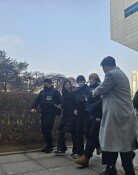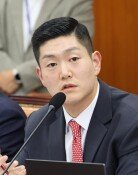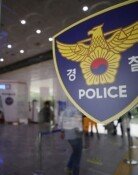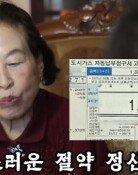Mayoral, Gubernatorial Races Go Neck-and-Neck
Mayoral, Gubernatorial Races Go Neck-and-Neck
Posted June. 03, 2010 14:00,
The ruling Grand National Party struggled against the main opposition Democratic Party Wednesday in the local elections, with many races neck-and-neck in the Seoul metropolitan area.
In the races for elected positions in 16 metropolitan cities and provinces, those in Seoul, Incheon, the Chungcheong provinces, South Gyeongsang Province and Jeju Province were too close to call as of 11 p.m. Wednesday. The final results were expected after vote counting ended.
Incumbent Seoul Mayor Oh Se-hoon was favored to win a second term, but former Prime Minister Han Myeong-sook of the main opposition Democratic Party took the lead with 48.4 percent as of 11 p.m. with 5.3 percent of votes counted. Oh was second with 45.9 percent.
In Incheon, ruling party candidate and incumbent mayor Ahn Sang-soo was leading Democrat Song Young-gil by 0.4 percentage point with 5.1 percent of the votes counted.
The ruling party also struggled in its traditional strongholds of South Gyeongsang and Gangwon provinces.
In the gubernatorial race in South Gyeongsang, independent Kim Du-kwan led the ruling partys Lee Dal-gon by 3.4 percentage points with 14.6 percent of the ballots counted.
In Gangwon, Democrat Lee Kwang-jae took the lead over the ruling partys Lee Kye-jin by 2.8 percentage points with 25.2 percent of the ballots counted.
In North Chungcheong Province, incumbent governor Chung Woo-taek of the ruling party led Lee Si-jong of the Democratic Party with 17.2 percent of the votes counted. No clear winner was evident, however.
The Democratic Party also fared well in South Chungcheong Province, the power base of the minor conservative Liberty Forward Party. Ahn Hee-jung of the Democratic Party took the lead over Park Sang-don of the Liberty Forward Party by 4.1 percentage points.
In the gubernatorial race in Jeju, independent Hyun Myung-kwan, who bolted from the ruling party, led another independent Woo Geun-min by a narrow margin.
Eight candidates for the heads at lower-level administrative units, 44 for metropolitan councilors, 16 for councilors at lower-level administrative units, 98 for proportional representative councilors at lower-level administrative units, and one educational councilor were elected thanks to single candidacy or invalidation of other candidates.
kimkihy@donga.com







